- Home
- Civica
- Civica News
- "conferences Like This One Are Crucial For Engaging Youth In Shaping Cohesive European Policies."
"Conferences like this one are crucial for engaging youth in shaping cohesive European policies."
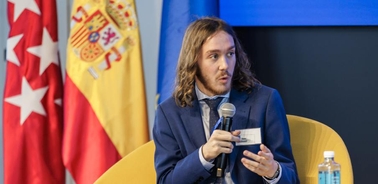
European Public Policy Conference 2024: Integration and Disintegration — by Sam Ferdinand
A few months ago, in mid-April, IE International Relations Society hosted the 2024 edition of the European Public Policy Conference, an annual conference organized by Hertie School students. Each edition has a specific theme around European public policy, with the objective of fostering discussion among attendees—which included academics, professionals and students—about how to address many of Europe's pressing problems in the most effective way.
This year’s topic, “Integration and Disintegration,” was especially relevant given the EU’s evolution post-Brexit, the rise of right-wing populist parties, the consequences of Russia’s invasion of Ukraine and this year’s European Parliament elections.
From the IE International Relations Society, we were absolutely delighted to be contacted by the Hertie School team several months before to help them with the conference and host the event at IE Tower. The Hertie team had incredible ideas for panels and speakers, which made it a very exciting project to collaborate on. We enthusiastically jumped on board, and over some months, Hertie and IE University worked hand in hand. Between the two teams, we organized different panels, speeches and presentations on a range of topics for the three days of the conference.
On the first day, we had the opening ceremony with a welcome speech by representatives from Hertie School and IE University, and an address from Maria Margarete Gosse, German Ambassador to Spain. Afterward, we started off with the first panel of the day, which was on EU Enlargement to the Western Balkans and the Eastern Trio (Moldova, Georgia and Ukraine). The panel analyzed its geopolitical implications, especially considering concerns over territorial integrity, conflicts with Russia and ethnic tensions.
Day one was also an opportunity for three selected students to present the research papers they were working on. Sonia Monserrat Jorge, IE University student in the Bachelor in International Relations, presented her research on how the EU uses climate and energy policy in Latin America as a geoeconomic strategy in order to decouple and de-risk from China and Russia. Chiara Wehlte, studying a Master of Public Policy at Hertie School, discussed her research on the role of Eurobonds in strengthening and further unifying Europe, in what she calls “Europe’s Pre-Hamiltonian Moment.” Lastly, Vermon Washington, studying the Master in International Development at IE University, delivered a presentation on the EU-Horn of Africa Alliance and its implications for regional trade and security.
Following these brilliant student presentations, the day continued with a second panel on EU enlargement, featuring insights from officials involved in Serbian, Georgian and Montenegrin EU accession efforts. The speakers discussed the state of EU enlargement, regional perspectives and policy recommendations, addressing potential benefits, shortcomings and tensions in the EU expansion process. The third and final panel of the day was based around economic integration, including disparities in economic development among member states and candidate countries, exploring strategies for fostering convergence. The conversation brought in a range of different perspectives and dimensions on the topic.
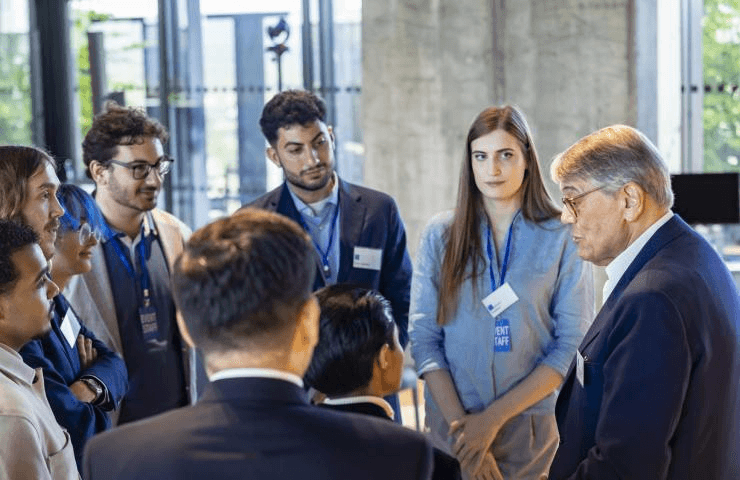
To finish the day, we had the honor of listening to a keynote speech from Ambassador António Martins da Cruz, former Minister of Foreign Affairs of Portugal. He shared his insights and personal experience relating to the European project and explained what he believes are the three possible outcomes of the war in Ukraine and what each would mean for Europe.
The second day of the conference was quite varied. The first item on the agenda was a conversation on digital governance, touching on areas such as the impact of digitalization in creating technological resilience for Europe in the midst of heated tech competition between the US and China, digitalization to further EU integration, and the EU AI Act.
Later, the panel on trade and expansion examined whether the EU can function independently as a third bloc between the US and China, focusing on recent trade developments, regional disparities, and long-term impacts like Brexit and the US Inflation Reduction Act. The speakers highlighted the need for the EU to develop its own foreign policy and economic strategies amid these global dynamics.
We also had a round-table discussion on “Building Bridges,” which advocated for further EU integration and better integration with other parts of the world, emphasizing the need to foster unity and collaboration within Europe. The conversation highlighted the importance of promoting common values and a common European identity, resolving conflicts through diplomacy, and enhancing citizen participation in policymaking.
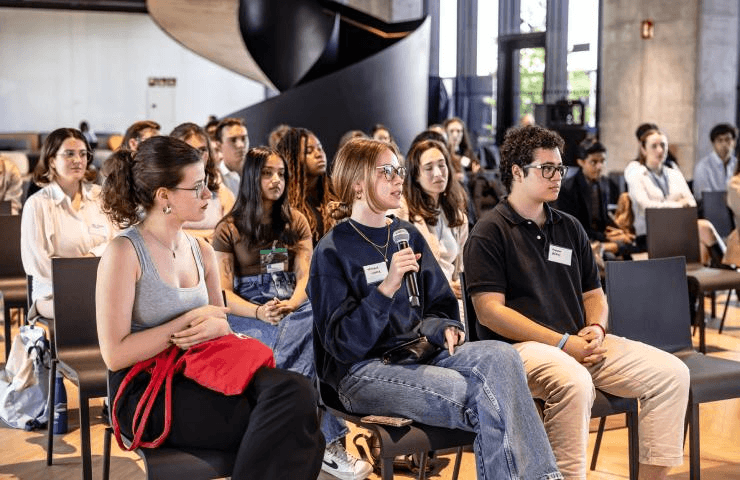
Day two ended with a panel on the European Green Deal. It emphasized Europe’s potential as a model for sustainable living and considered the socio-political effects of environmental policies, particularly on farmers and carbon-intensive industries. The panel explored the feasibility of a unified green development plan, addressing regional disparities in emissions and industrial regulations and the need for sustainable energy investments.
The third and final day of the conference was inaugurated by Pasi Kokkonen, Counselor of the Embassy of Finland to Spain, who delivered an engaging talk on European foreign and security policy. It was followed by a discussion on the future of the EU’s foreign policy in a multipolar world. Among other things, we addressed the feasibility of European strategic independence and how to balance the interests of powerful member states with the growing influence of smaller Eastern countries in security matters. The conversation also covered EU support for Ukraine and its influence on other nearby conflicts.
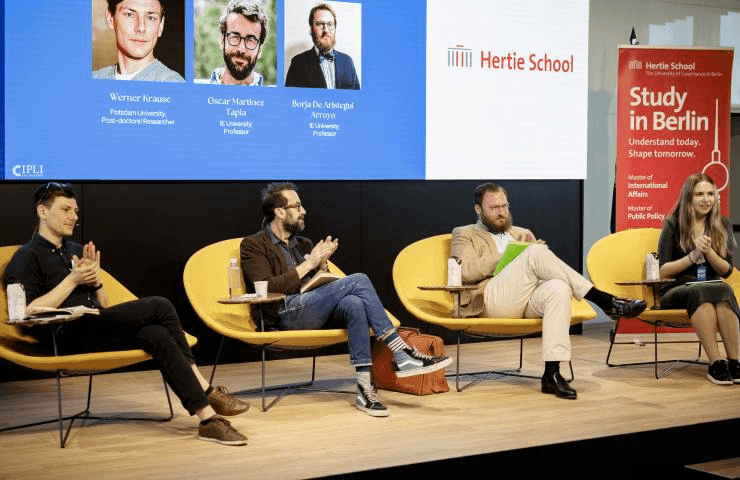
The final panel of the conference discussed Euroscepticism and its evolution in different member states. The panelists analyzed the political dynamics driving this sentiment, including national sovereignty, immigration and cultural identity, and examined the success—and, in some cases, decline—of extremist parties. It also explored the impact of leaders like Viktor Orbán and Geert Wilders, and the effect of Brexit on the Eurosceptic movement. Participants were able to share their countries’ experiences with Eurosceptic movements, particularly with the June European Parliament elections that were coming up.
Overall, the European Public Policy Conference 2024 was a fantastic experience that I am proud to have been a part of. The conversations that took place over these three days were truly thought-provoking and inspiring, both during the sessions themselves and with speakers and other participants during the coffee breaks and lunch networking sessions. It was wonderful to see so many passionate people from different backgrounds discussing their many ideas for Europe, while enjoying the Spanish sun on Madrid’s highest terrace.
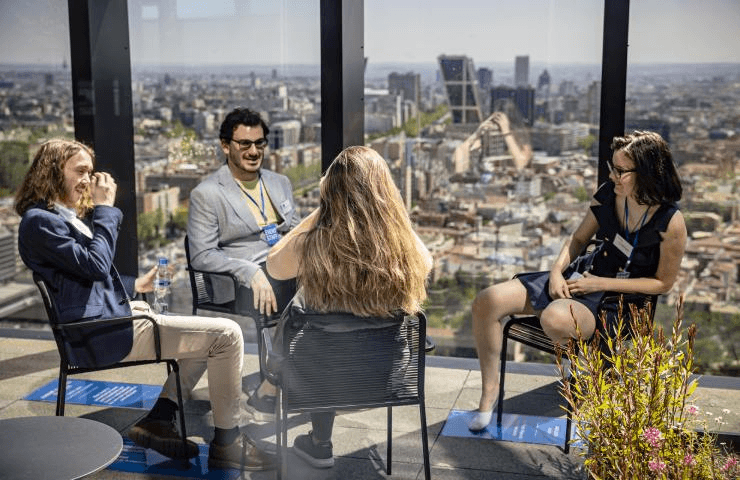
The feedback from attendees and guest speakers was very positive—they found it to be an insightful and productive experience. Some described it as “a perfectly executed event” consisting of “crucial conversations about decisions vital for a strong Europe.” The conference emphasized the benefits of continued EU enlargement, economic integration and strategic independence, along with the need to address regional disparities and global trade dynamics. Key takeaways included commitments to support Ukraine, enhance cross-border collaboration and increase public engagement in European-level decision-making.
I believe that conferences like this one are crucial for engaging youth in shaping cohesive European policies, fostering dialogue and generating actionable insights to address future challenges. Anyone studying international relations, public policy or international development and economics will be charting the course and leading our Union in the next decades. It is essential for us to learn as much as possible and debate ideas now in anticipation of what the world could look like in the future.
We were privileged to have the opportunity to be a part of the EPPC 2024, and I would like once again to thank all the incredible expert speakers, panelists and participants for sharing their experiences and perspectives with us—we loved debating ideas with you. I would also like to thank the main sponsors of the conference: IPLI Foundation and CIVICA. We also could not have done it without the support of IE Campus Life and the IE School of Politics, Economics & Global Affairs team. But my biggest “thank you” goes to the awesome team of Hertie School students for putting together such an amazing agenda, and to my fellow IE International Relations Society members who helped with the conference. You made it a very special occasion.
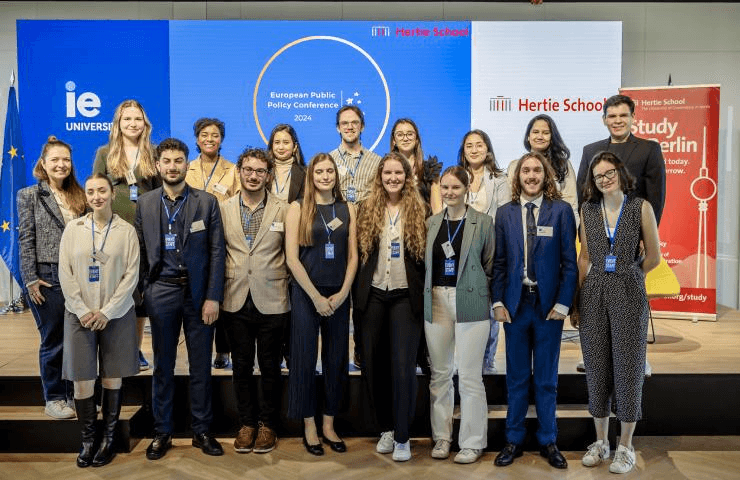
The conference was an extraordinary gathering where extremely relevant and pressing issues were discussed. It is important not only for our education, but especially for our futures—and that of our continent—to participate in these conversations and take concrete actions to create the world we want to live in. I encourage everyone to attend the next EPPC and other similar conferences and summits—they offer an invaluable experience.
To find out about similar initiatives and events, follow IE International Relations Society on LinkedIn and Instagram. We would also love to hear from other organizations related to international affairs that are interested in collaborating or forming an alliance with us!
We wish the best of success to the EPPC next year and I hope that we all meet again!
Sam Ferdinand
President of IE International Relations Society